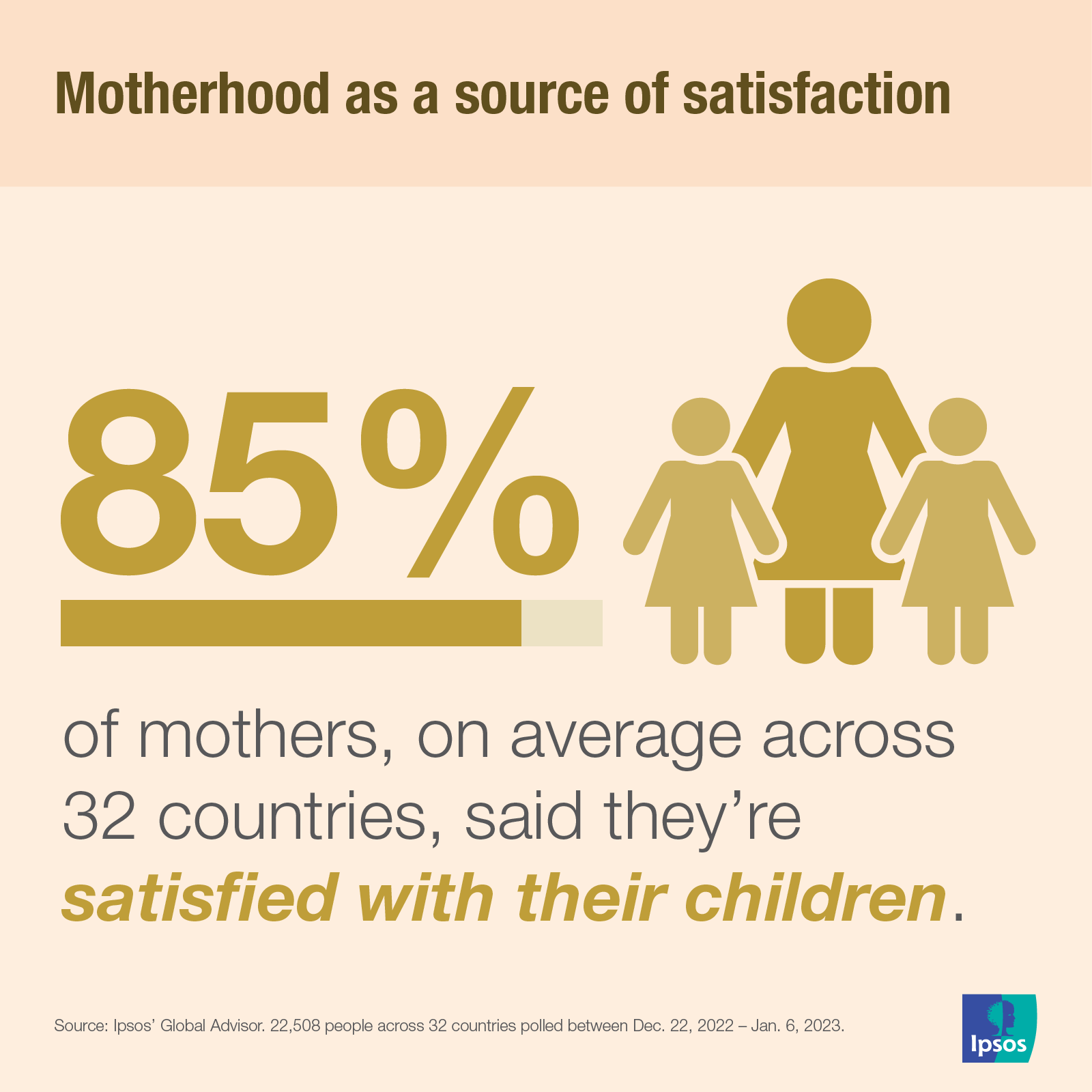

Data Dive: How motherhood is viewed around the world
In five infographics, we uncover how people feel about everything from whether being a mother/wife is a woman’s main role in society to stigma surrounding fathers taking the lead with childrearing.
Being a mother is, well, a mother of a job.
Albeit it’s an unpaid, and often underappreciated, job. But, one day every year kids and partners around the world shower mothers with homemade cards, fresh flowers and a well-intentioned (if often burnt) brunch from the little ones.
With people around the globe marking Mother’s Day this spring, we’re taking a look beyond the sentimental side of the annual celebration and diving into how attitudes about motherhood have, and haven’t, evolved.
- The more things change, the more things stay the same...
For a long time, becoming a mother and wife was seen as the only life path for women to take. But, by the ‘60s and ‘70s more women around the world stepped out of the kitchen and have since increasingly stepped into leadership positions on campuses, in boardrooms and on the global stage.
Despite all the progress that’s been made in recent decades, a significant minority (41%, on average across 50 markets) still think the main role of women in society is to be good mothers and wives.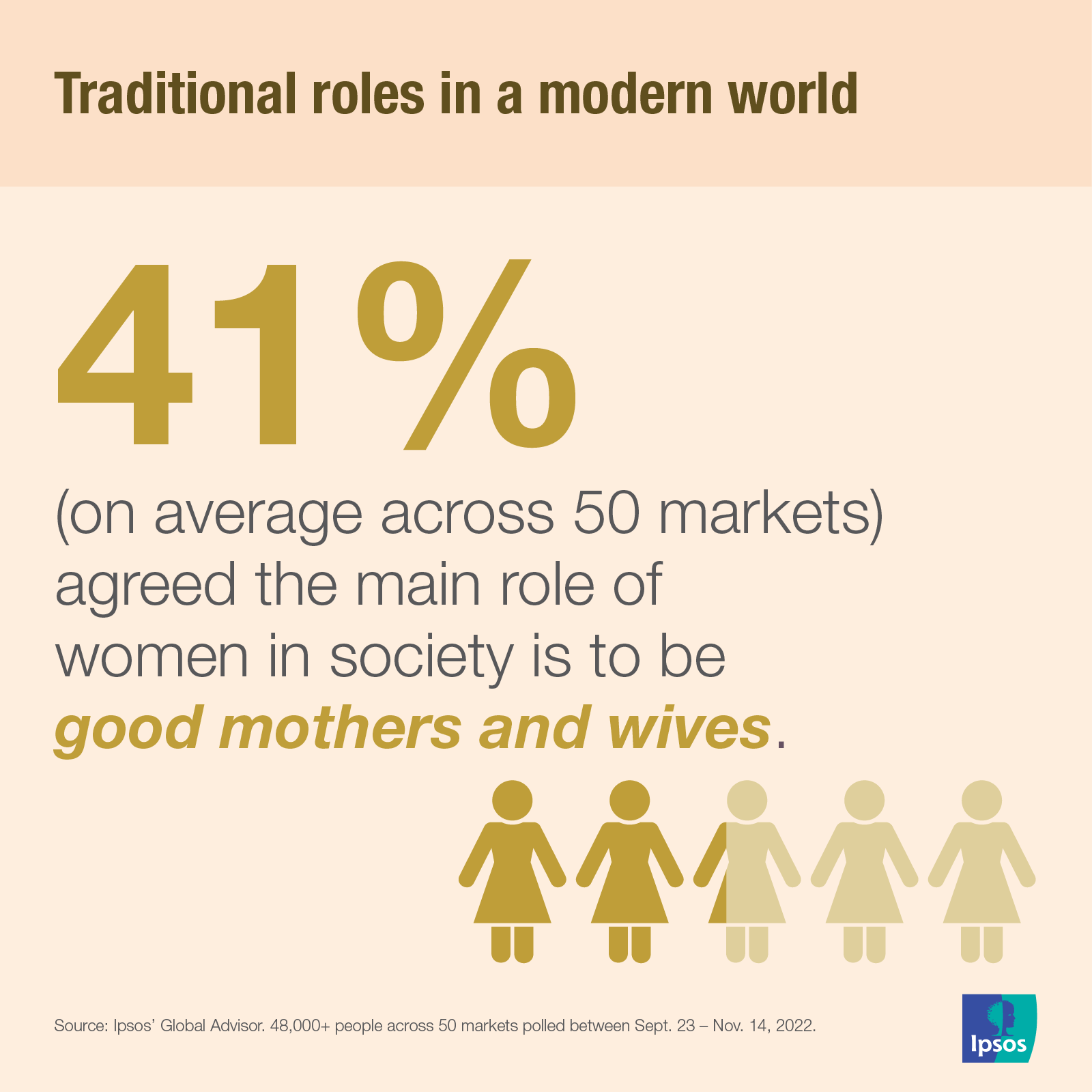
- Paying for it.
While some mothers stay at home to raise children others want, or need, to do paid work outside the home.
Working moms are often asked how they juggle it all and may have an inkling they’re being judged more harshly than working dads. Ipsos polling last year shows there’s likely some truth to that feeling.
Slightly more than one in three (35%, on average across 30 countries) agreed having childcare issues come up during the workday was more likely to damage a woman’s career vs. 9% who said the same about a man’s career. A similar percentage (33%) said childcare issues popping up during work wouldn’t hurt the career of a man or woman and the remaining 23% said it would equally damage the career of both.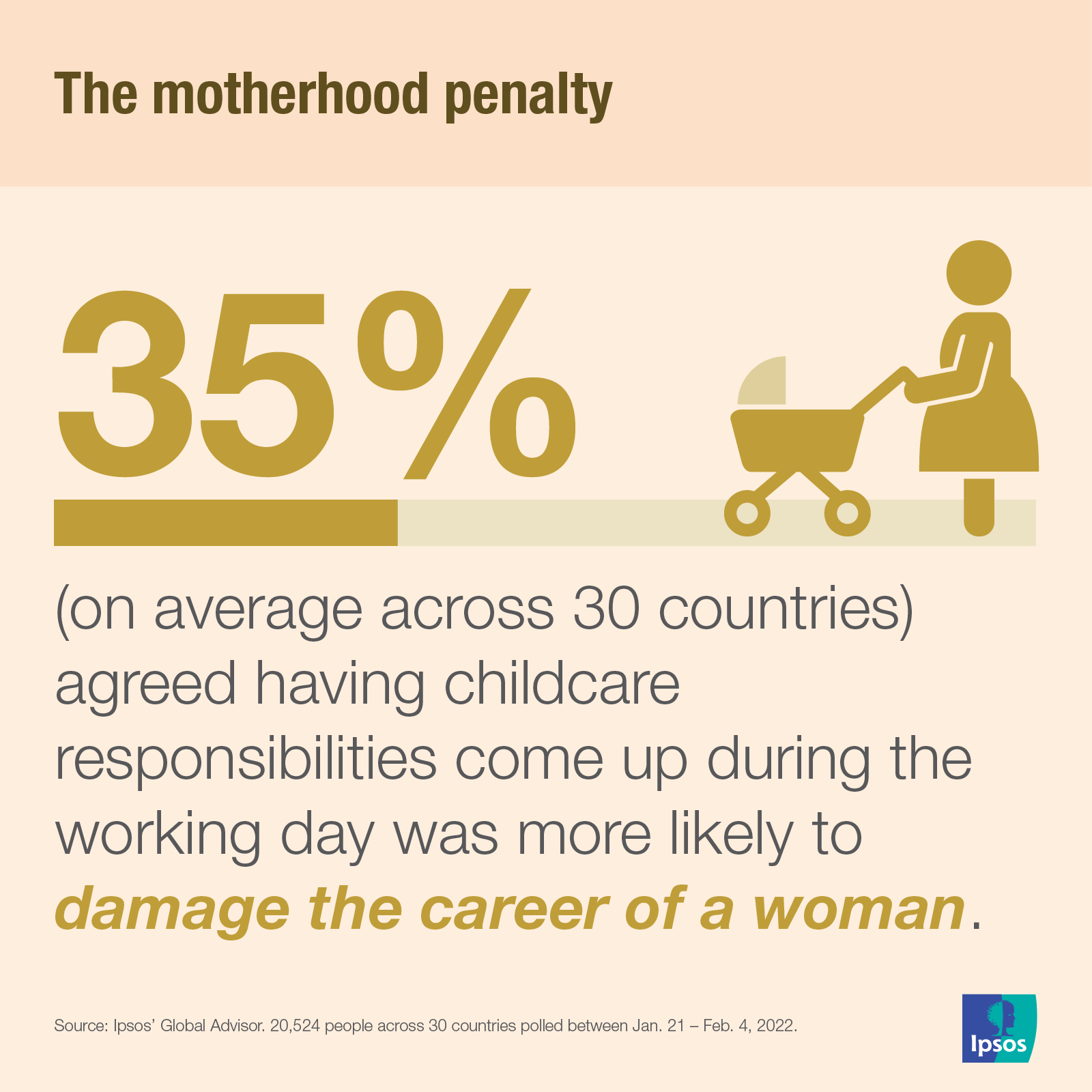
- Trading places
It’s not just working mothers who face judgement these days.
Families in developed countries now come in all shapes and sizes, from single moms by choice to two-dad households, and parents make decisions about who does the bulk of the childrearing based on what works for them not based on the opinion of others. But, that doesn’t mean people don’t have harsh opinions on stay-at-home dads.
In fact, the percentage of people who think a man that stays at home to look after his children is less of a man rose six percentage points, on average globally, from 18% in 2019 to 24% in 2023.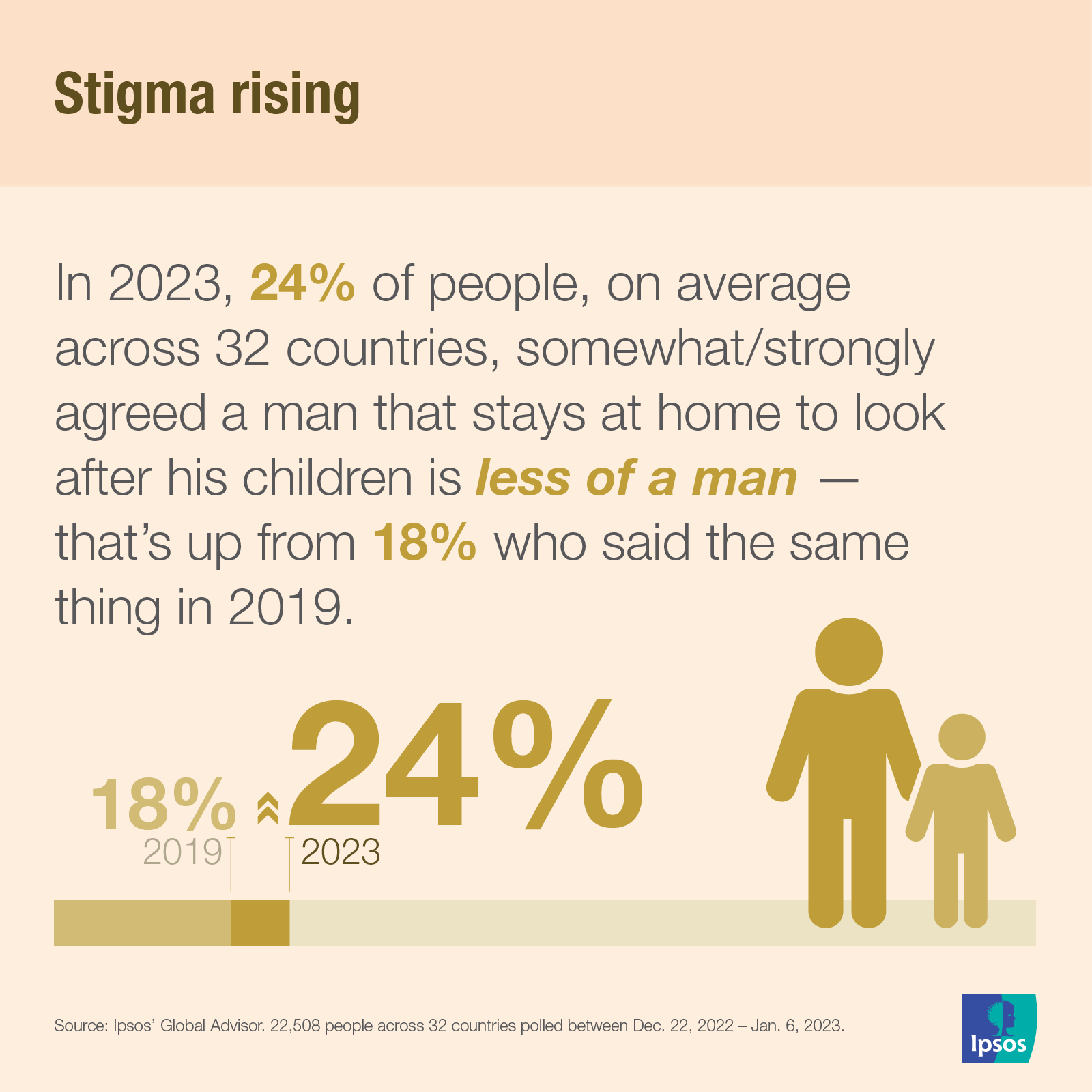
- The right to choose
Progress clearly isn’t a straight line. Baby Boomers and older Gen Xers came of age as everything from the pill to loosening abortion laws allowed women in some countries greater freedom to choose if, and when, they became mothers. So, it’s really not that surprising almost two in three people aged 50-74, on average across 27 countries, support abortion in all/most cases.
What’s perhaps more surprising? While those under 50 (Gen Zers, millennials and younger Gen Xers) are often portrayed in the media as being much more liberal than their parents and grandparents, they’re actually slightly less supportive of abortion in all/most cases than people over 50 are.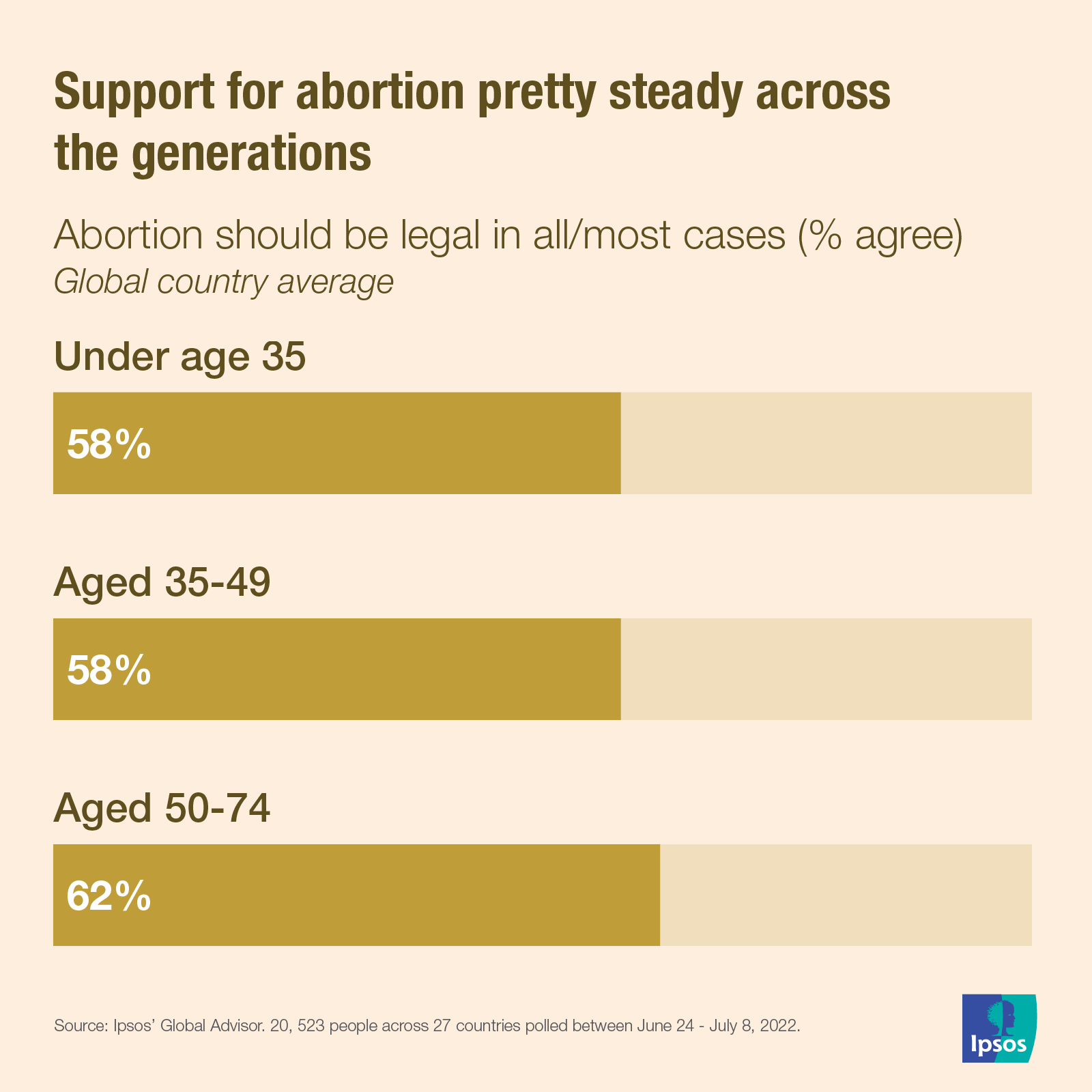
- Image vs. reality
Ads, pop culture and social media are filled with slick images of beautiful, beaming mothers doting on their gorgeous, glowing brood
As any exhausted mom could tell you, reality is a bit more complicated.
Recent polling via Ipsos’ Global Advisor found the vast majority of both women (85%, on average across 32 countries) and men (84%) who are parents are satisfied with their children.
Yet, satisfaction with one’s children actually came in last in a list of 30 key happiness drivers, with other factors (such as feeling that you are in control of your life and that your life has meaning) having a stronger correlation with reported happiness levels.